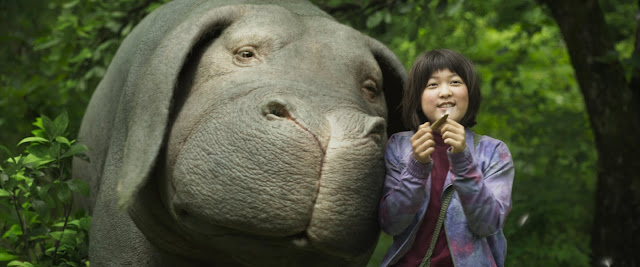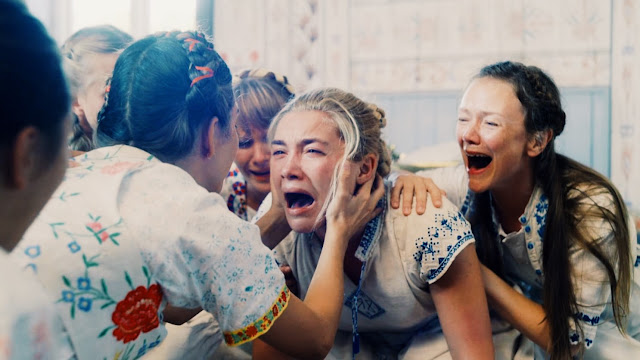That Obscure Object of Desire (1977)
FILM CLASSIC REVIEW #12
A Bunuel Affair - an analysis of That Obscure Object of Desire

Luis Bunuel is the 20th century's greatest experimental filmmaker. From the dawn of silent pictures, Bunuel had been turning heads and shocking the establishment with his with his bizarre, incomprehensible cinematic ventures. He came, saw and perfected art filmmaking forever with the help of his friend Salvador Dali, on the historically acclaimed short shocker Un Chein Andalou. The question is, with such fame achieved at such an early age, what more did he have to prove? The answer is much more. As an auteur, he continued to make some of the most interesting surrealists masterpieces of recent memory, like the Twilight Zone-type suspense thriller The Exterminating Angel. Most of his films centered on one common concept, and that is Bunuel's subconscious fascination of human sexuality. How it controls us, and destroys us. We enter, his final picture, That Obscure Object of Desire, and it is by far his most sexually fascinating film of all. It is a torturous exercise of patience, impotence and aggravation. In the end, he absolutely encapsulates in one movie, what the Heteronormative experience is all about.

What we have is the story of a wealthy bachelor named Mathieu, played impeccably by Fernando Ray, as he recounts to a packed train car of curious passengers, his story of love lost. He has fallen for a beautiful woman named Conchita, who teases him with her graceful ability to flirt with him. For the first half of the movie, they end up following each other, and enter each other's lives as if cupid's arrow struck the both of them. With all this newfound attention, Mathieu is revved up and ready to make love to her. Yet, with every advance he makes, it is met with very adamant rejection from Conchita. He tries to use money to convince her mother to marry her, but that doesn't work. He successfully gets her into bed, unclothes her, and realizes that she has a chastity brace hiding under her gown. Time and again, he keeps getting shut out of sex, and eventually, he begins to lose control of his self-respect and moral boundaries. By today's standards, he would be accused of trying to rape the poor woman.

What makes the case of Conchita so fascinating, is how controlling and cunning she is at Mathieu's advances, and as a female character, Bunuel constructs what is in essence, a feminist hero. Well, make that, heroes. What do I mean? It seems as if Bunuel has cast two different actresses to play the role of Conchita, Carole Bouquet and Angela Molina. To my delight, and surprise I couldn't tell the difference. The casting of these two women were brilliant on the part of Bunuel, because they both represented Conchita with two strong and clever females, who drag Mathieu along through the entire film, and torture his sexual desires. Bunuel has always had a knack of portraying women as clever temptresses, like the scenes in Au Chein Andalou which portray the female character as fuel to the man's sexual fetishes, and yet get she gets the best of him in the end. One must ask the question of whether or not Conchita actually exists? Perhaps it's a figment of Mathieu's vibrant imagination. But does that really matter? She could be real or not real, in the end, Conchita is a metaphor for sexual perversity, and the ignorance of men.

As with most of his films, Bunuel uses his surrealist imagery and story telling to convey a unique form of symbolism. One of the more unexplained and fascinating aspects of the picture was the ongoing crisis of domestic terrorism in France that occurred as the story of the two lovers was being told. The film so famously ends with Mathieu and Conchita dying in a bomb explosion. It was a head scratcher, indeed. But I concluded with something interesting, and that is that Mathieu and Conchita were leaving disaster everywhere they turned, and usually when there was a rift in the relationship. It felt that it was the universe trying to separate them from each other, as if Conchita's chastity wasn't enough of a deterrent. The film ends in a very unsettling fashion, as we see the couple shopping in a museum, not particularly happy with their relationship, but not particularly wanting to leave each other. It was almost as if the film itself had enough of such inane romantic indecisiveness, and just decided to end it all by killing them in an explosion. It was truly never meant to be, and Bunuel knows it.
In conclusion, That Obscure Object of Desire is an affair not worth missing out on. It is the performances and storytelling that are the most attractive, and as his swan song, Bunuel knocks it out of the stratosphere, with explosions.
A Bunuel Affair - an analysis of That Obscure Object of Desire

Luis Bunuel is the 20th century's greatest experimental filmmaker. From the dawn of silent pictures, Bunuel had been turning heads and shocking the establishment with his with his bizarre, incomprehensible cinematic ventures. He came, saw and perfected art filmmaking forever with the help of his friend Salvador Dali, on the historically acclaimed short shocker Un Chein Andalou. The question is, with such fame achieved at such an early age, what more did he have to prove? The answer is much more. As an auteur, he continued to make some of the most interesting surrealists masterpieces of recent memory, like the Twilight Zone-type suspense thriller The Exterminating Angel. Most of his films centered on one common concept, and that is Bunuel's subconscious fascination of human sexuality. How it controls us, and destroys us. We enter, his final picture, That Obscure Object of Desire, and it is by far his most sexually fascinating film of all. It is a torturous exercise of patience, impotence and aggravation. In the end, he absolutely encapsulates in one movie, what the Heteronormative experience is all about.

What we have is the story of a wealthy bachelor named Mathieu, played impeccably by Fernando Ray, as he recounts to a packed train car of curious passengers, his story of love lost. He has fallen for a beautiful woman named Conchita, who teases him with her graceful ability to flirt with him. For the first half of the movie, they end up following each other, and enter each other's lives as if cupid's arrow struck the both of them. With all this newfound attention, Mathieu is revved up and ready to make love to her. Yet, with every advance he makes, it is met with very adamant rejection from Conchita. He tries to use money to convince her mother to marry her, but that doesn't work. He successfully gets her into bed, unclothes her, and realizes that she has a chastity brace hiding under her gown. Time and again, he keeps getting shut out of sex, and eventually, he begins to lose control of his self-respect and moral boundaries. By today's standards, he would be accused of trying to rape the poor woman.

What makes the case of Conchita so fascinating, is how controlling and cunning she is at Mathieu's advances, and as a female character, Bunuel constructs what is in essence, a feminist hero. Well, make that, heroes. What do I mean? It seems as if Bunuel has cast two different actresses to play the role of Conchita, Carole Bouquet and Angela Molina. To my delight, and surprise I couldn't tell the difference. The casting of these two women were brilliant on the part of Bunuel, because they both represented Conchita with two strong and clever females, who drag Mathieu along through the entire film, and torture his sexual desires. Bunuel has always had a knack of portraying women as clever temptresses, like the scenes in Au Chein Andalou which portray the female character as fuel to the man's sexual fetishes, and yet get she gets the best of him in the end. One must ask the question of whether or not Conchita actually exists? Perhaps it's a figment of Mathieu's vibrant imagination. But does that really matter? She could be real or not real, in the end, Conchita is a metaphor for sexual perversity, and the ignorance of men.

As with most of his films, Bunuel uses his surrealist imagery and story telling to convey a unique form of symbolism. One of the more unexplained and fascinating aspects of the picture was the ongoing crisis of domestic terrorism in France that occurred as the story of the two lovers was being told. The film so famously ends with Mathieu and Conchita dying in a bomb explosion. It was a head scratcher, indeed. But I concluded with something interesting, and that is that Mathieu and Conchita were leaving disaster everywhere they turned, and usually when there was a rift in the relationship. It felt that it was the universe trying to separate them from each other, as if Conchita's chastity wasn't enough of a deterrent. The film ends in a very unsettling fashion, as we see the couple shopping in a museum, not particularly happy with their relationship, but not particularly wanting to leave each other. It was almost as if the film itself had enough of such inane romantic indecisiveness, and just decided to end it all by killing them in an explosion. It was truly never meant to be, and Bunuel knows it.
In conclusion, That Obscure Object of Desire is an affair not worth missing out on. It is the performances and storytelling that are the most attractive, and as his swan song, Bunuel knocks it out of the stratosphere, with explosions.


Comments
Post a Comment